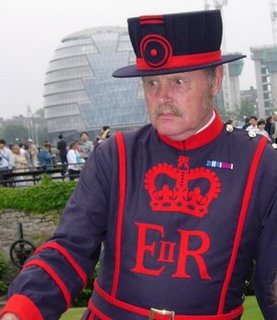
The average Russian laborer may earn less than a tenth of a Western European worker's wages. But Russia's fat cats face no such indignity, netting even more than their Western European counterparts, a new survey indicates.
Thanks to favorable tax conditions and a booming economy, executives at Russia's biggest companies on average take home 750 euros ($890) more than Western bosses, according to a survey by Watson Wyatt, a global consultancy firm.Average after-tax pay for Russian managers was calculated at 108,750 euros, as opposed to 108,000 euros for Western European executives.
The report surveyed 125 companies in Russia.
"This is a phenomenon almost exclusively within executive positions," said John Lewis, who authored the report, by telephone from Brussels. "Further down there is still a big gap between how much professionals are paid in the West and Russia."
The average salary for mid-level managers is anywhere between $20,000 and $70,000, another study found earlier this year. That survey, released by human resources firm Ancor, interviewed 68 companies in Russia.
Annual wages across Russia last year averaged some 66,000 rubles, or about 1,900 euros, according to official statistics.
A limited pool of people with the right experience and talent to fill executive positions in Russia plays a part in driving up wages. However, low income taxes play a greater role in giving Russia's top managers the upper hand over colleagues further west, Lewis said.
"In Germany net pay at the executive level is 55 to 65 percent of the paycheck because of taxation," he said, while Russian bosses take home 87 percent thanks to the 13 percent flat tax.
As the economy grows, the trend has been for the gap in Russian and Western gross wages to narrow considerably.
A recent study from PricewaterhouseCoopers showed that executives in Moscow companies with a turnover of over $50 million earn a median of $109,000 before taxes, with average annual bonuses of 20 percent. The Russian edition of Forbes magazine on Thursday published a list of the country's 100 richest people, including 36 billionaires. That is a ninefold increase since Forbes first published the names of four Russian billionaires in 1997.
Businesses catering to high earners are catching on to the fact that some Russians make a lot. On Thursday, HSBC bank announced it would open a Moscow office to offer private banking services for well-to-do Russians.
"As the Russian economy continues to grow, the number of big net worth individuals will grow very fast," Richard Tickner, HSBC's Russia country manager, told Bloomberg. "There is a lot of competition, but this is a growth market."
Forbes added 11 new Russian billionaires to its list of wealthy Russians since the U.S. edition of the magazine released a list of the world's richest people in March. The editor of Forbes in Russia, Paul Klebnikov, said this addition resulted from the magazine using market capitalization figures from mid-April to evaluate Russian moguls -- a period when the stock market was at its peak. Not surprisingly perhaps, ordinary Russians complain they earn too little while their bosses earn too much.
According to a survey released by Fond Obshchestvennoye Mneniye on Thursday, 85 percent of workers who responded said they are not paid enough. Twenty-three percent of those respondents held the state of the economy responsible, while 17 percent blamed their higher-ups, who they said are "the only ones with high wages" and "thieves," Interfax reported. A startling 53 percent of the 3,000 adults surveyed said they were unemployed.
By Simon Ostrovsky, Moscow



